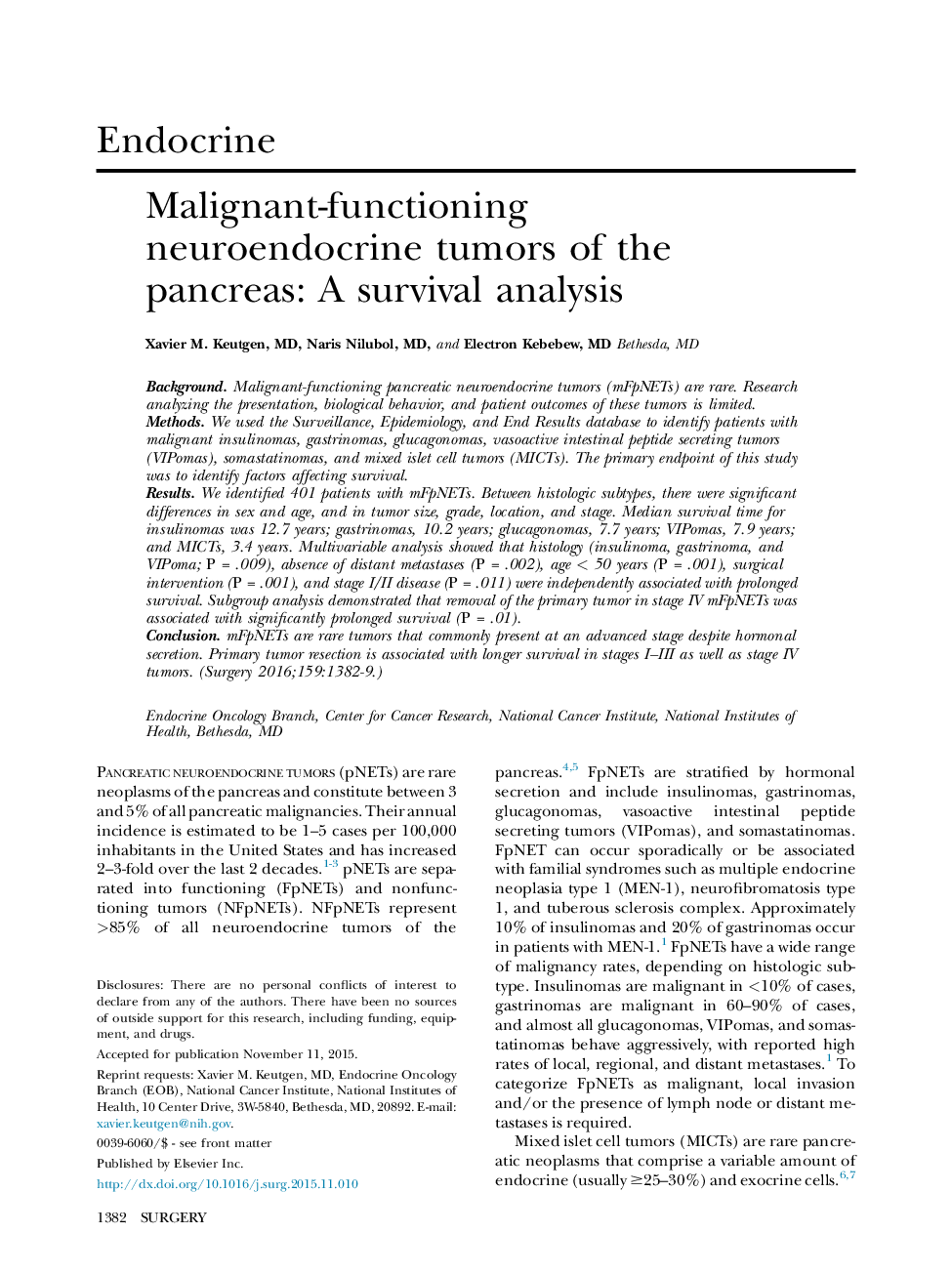| Article ID | Journal | Published Year | Pages | File Type |
|---|---|---|---|---|
| 6255067 | Surgery | 2016 | 8 Pages |
BackgroundMalignant-functioning pancreatic neuroendocrine tumors (mFpNETs) are rare. Research analyzing the presentation, biological behavior, and patient outcomes of these tumors is limited.MethodsWe used the Surveillance, Epidemiology, and End Results database to identify patients with malignant insulinomas, gastrinomas, glucagonomas, vasoactive intestinal peptide secreting tumors (VIPomas), somastatinomas, and mixed islet cell tumors (MICTs). The primary endpoint of this study was to identify factors affecting survival.ResultsWe identified 401 patients with mFpNETs. Between histologic subtypes, there were significant differences in sex and age, and in tumor size, grade, location, and stage. Median survival time for insulinomas was 12.7 years; gastrinomas, 10.2 years; glucagonomas, 7.7 years; VIPomas, 7.9 years; and MICTs, 3.4 years. Multivariable analysis showed that histology (insulinoma, gastrinoma, and VIPoma; P = .009), absence of distant metastases (P = .002), age < 50 years (P = .001), surgical intervention (P = .001), and stage I/II disease (P = .011) were independently associated with prolonged survival. Subgroup analysis demonstrated that removal of the primary tumor in stage IV mFpNETs was associated with significantly prolonged survival (P = .01).ConclusionmFpNETs are rare tumors that commonly present at an advanced stage despite hormonal secretion. Primary tumor resection is associated with longer survival in stages I-III as well as stage IV tumors.
